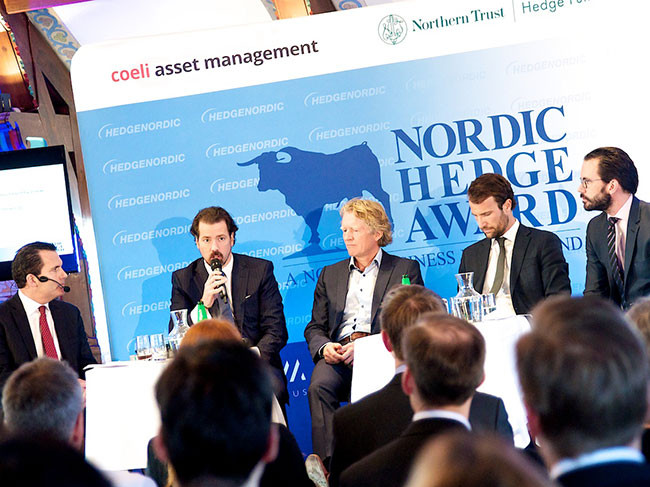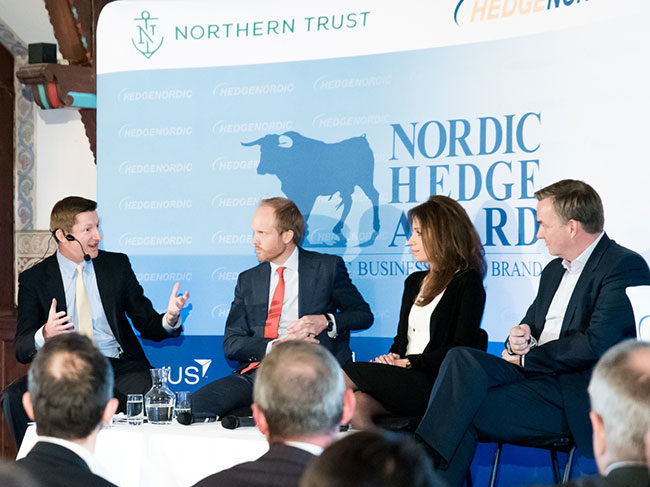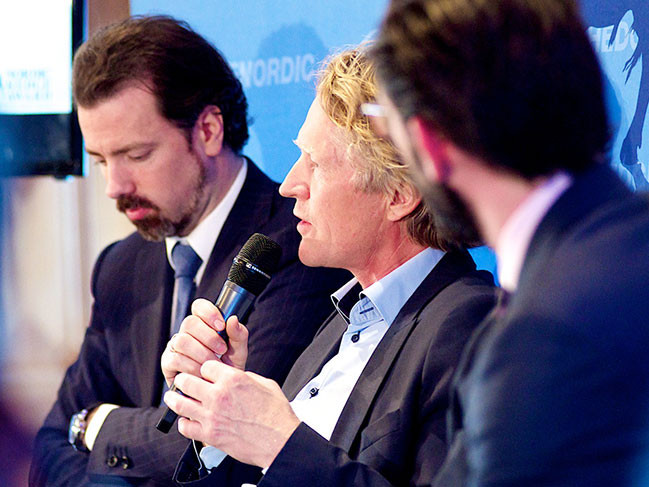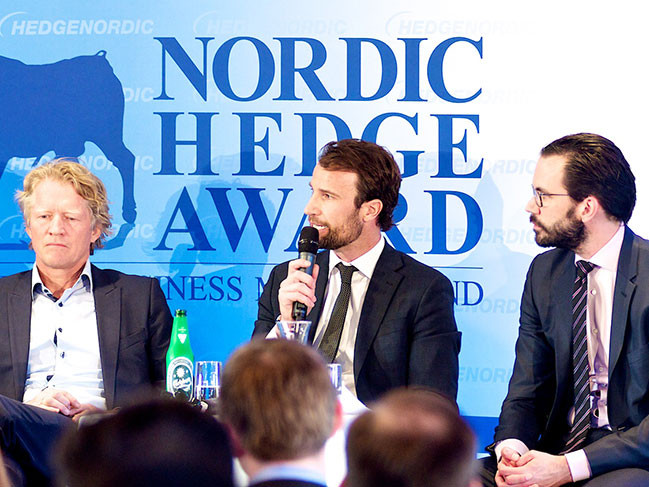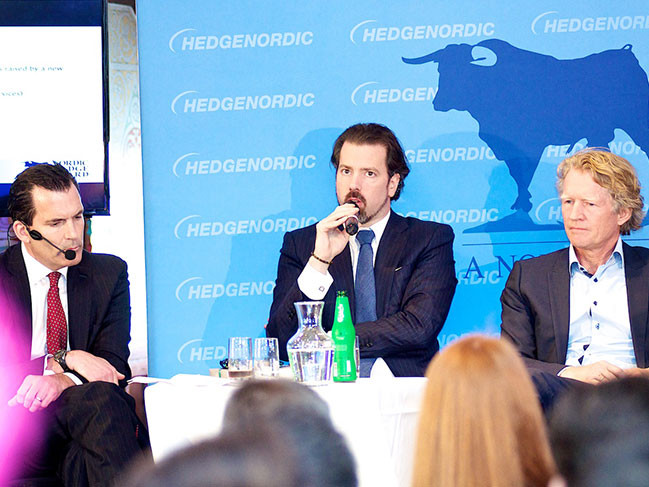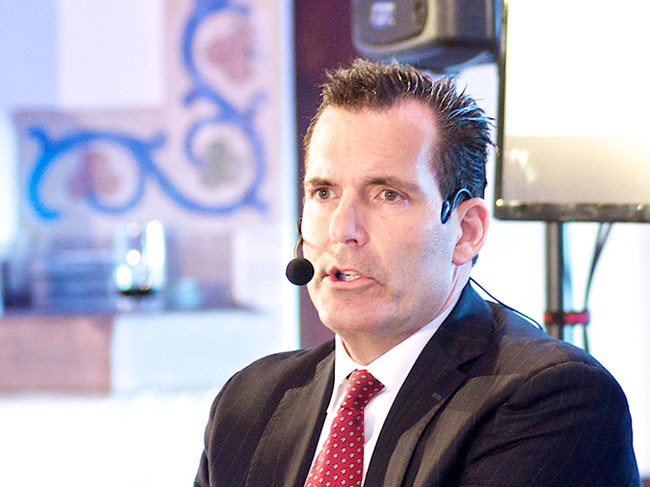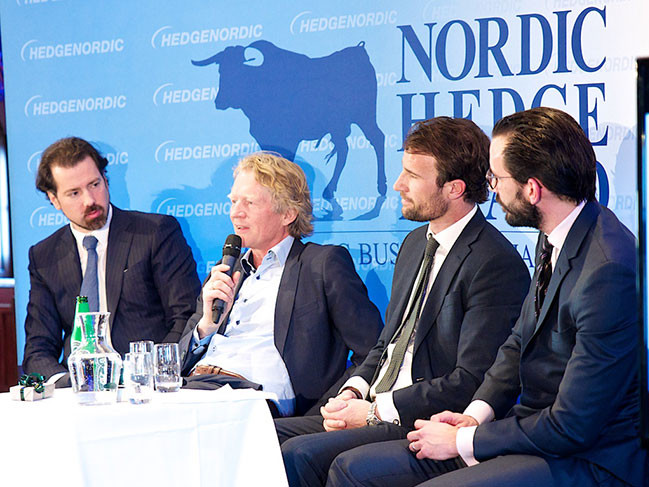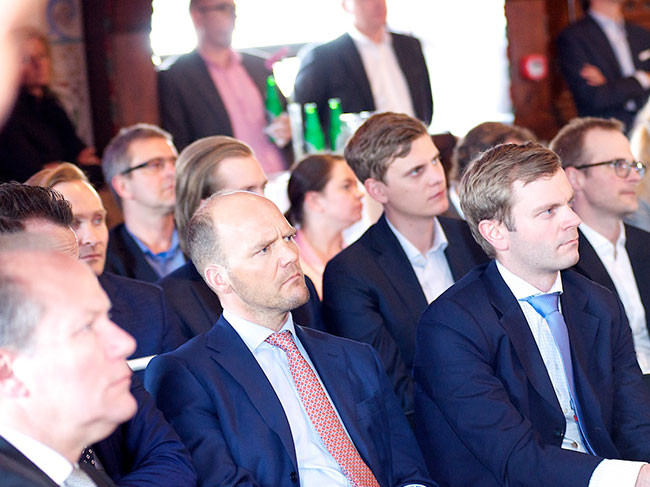London (HedgeNordic) – The hedge fund industry has undergone major changes since the financial crisis as the industry becomes more institutionalised with increased transparency and regulations forcing a re-think of industry priorities. These topics were the basis of the discussion, moderated by Peter Sanchez, CEO of Northern Trust Hedge Fund Services, at this year’s Nordic Hedge Award in Stockholm.
Transparency is an issue that has been widely debated within the hedge fund industry ever since the financial crisis and remains a major topic of discussion despite improvements.
A recent survey by Northern Trust Hedge Fund Services shows that there is still a discrepancy between asset managers and investors. Sanchez quoted the survey saying that the vast majority of managers believe their investors are “satisfied” with the transparency they receive. However, slightly less than half of investors would like more or substantially more transparency than they get today.
Martin Källström, Head of Alternative Investments at AP1, one of the Swedish national buffer funds, said he is generally happy with the level of transparency provided by the managers, but pointed out that the level of transparency varies greatly in the hedge fund industry. “We would never invest if we do not get enough information. There is a positive trend to increase investor transparency, which has been driven by mainly the institutionalisation and increased sophistication of the industry but also regulatory changes,” he said.
David Rindegren, portfolio manager at Carnegie Asset Management in Copenhagen, said that retail investors in Sweden had a longer history of investing in equity hedge funds than Danish investors, which makes transparency vital. “Our investor base is made up of two-thirds retail investors, making transparency one of the key issues as we need to make sure the investors fully understand what it is that they are buying,” he added.
Comparing the Nordic region with the rest of the world, Anders Holst portfolio manager at Lynx Asset Management, one of the Brummer & Partners family of funds, highlighted that Sweden is relatively competitive as the regulator, Finansinspektionen, has in many cases been ahead of its’ international peers in implementing tough regulations. “We are as transparent as we need to be,” he said.
Wollert Hvide, CEO of Sector Asset Management, questioned whether or not investors are asking the right questions. He argued that transparency into the positions is not as helpful as having the insight into the liquidity, exposure; who the investor base is; or having done scenario-based analysis of a fund.
Summing up the discussion on transparency Sanchez said it is all well and good to want transparency, but investors also need the right tools to know what to do with the data and information.
Increased regulation in the wake of the financial crisis has played a role in reshaping the hedge fund industry and increasing the operational demands on hedge fund managers. The Northern Trust survey shows that while the majority of managers and investors believe that at least some regulations have helped reduce the likelihood of another financial crisis, a fairly large percentage think regulation has not been helpful.
One point in particular is often raised and that is the barriers to entry and the stifling effect it has on new managers. Rindegren pointed out that it is also important to look into the unintended consequences of regulations and what new regulatory regimes do to the market itself, pointing to Jamie Dimon’s 2014 letter to shareholders. [Chairman and CEO of JP Morgan Chase].
Källström was also sceptical about the efficiency of new regulation to prevent any future Madoff incidents, but was convinced it has led to a consolidation and re-shaping within the hedge fund industry, with platforms and various other solutions on offer both to investors as well as new managers. One noticeable effect is that Källström gets less calls from US-based managers as a result of new EU-wide requirements.
Hvide is convinced regulation will not be an efficient barrier to stop the next Madoff, nor will it reduce risk. “It will only increase complexity. And it is easier to cheat with detailed regulation as there will always be ways around this whereas if there was a more general and broad requirement on good, prudent business practices it is much harder to get around,” he said.
Holst agreed, arguing that while regulation in Sweden has not caused major problems there is a risk that regulators, in general, could miss the target as they do not necessarily have the practical hedge fund experience to address problems.
Sanchez noted that there seem to be lot of data collection but not a clear path on how the regulators will use that data or how it could be useful.
Holst said data can be impenetrable even for financial experts, let alone regulators. “The US is further down the data collection path than Europe is (Form PF/CPO-PQR for the last three years, AIFMD in the last year) and Europe could learn from the experience in the US.
A positive effect of regulation, from a Nordic managers’ point of view, is that many Nordic hedge funds are now seeing the whole of Europe as a big fishing ground. “They are looking at how they can take their strategies internationally to grow their AUM through the distribution channels that the new regulation allows for,” Holst pointed out.
The panellists concluded the discussion on regulation by pointing out that complying with regulation is a fact of life and has to be in place but not a priority, such as generating alpha.
Turning to the issue of priorities, Källström said top priorities are talent, alpha generation and risk management with other issues being more of a box-ticking exercise.
On the issue of talent, Holst said finding the right recruits is tough which is why the firm focuses on people with a strong connection to the Nordic region. “We take a while to bring talent on board and give them a few years to blossom and learn the skills. We are looking for interesting ideas and interesting people rather than just finding someone to implement a model,” he added.
Other points made during the discussion was the focus shifting from alpha towards distribution and AUM in order to stay in business. The panellists agreed that while the majority of assets are going to the bigger hedge funds as they have more resources to spend on operational infrastructure, there are ways for start-ups to flourish be it through platforms or seeding.
Going forward, the hedge fund industry is facing a challenging time as other strategies such as traditional long-only funds offer great returns, often at a lower price. In addition, scepticism of the viability of hedge funds when investors such as CalPERS pull assets from it does not help.
In order to continue to attract clients, Rindegren said education is vital and that the low, or negative interest rate environment as in the case of Denmark, forces investors to look at alternatives such as hedge funds, giving the industry an opportunity to continue prospering.
Källström said evaluating and selecting managers based on past performance is risky. “There is too much randomness in the short-term performance numbers.With that said, it is harder to justify investing in a manager with poor performance. Nevertheless, if a manager has an interesting story and have the right talent, we could consider investing,” he concluded.
Pictures: (c) Nikals Akesson for HedgeNordic

